Dongnyok Publishing has issued an apology to singer IU for the controversy surrounding her song “ZeZe.”
Dongnyok Publishing is the publishing company for “My Sweet Orange Tree” in Korea, and it brought national (and even global) attention to IU’s song on November 5 when it expressed its distaste for the sexualization of the main character in the book, Zeze, in the artist’s song, writing, “Zeze is a five-year-old who is hurt because of the abuse he receives from his family. With his words, ‘Why must children grow up?’ he makes many readers cry.” The company also objected to the portrayal of Zeze in the cover of IU’s album, which shows the book’s protagonist in fishnet stockings and sitting in a pinup-girl position.
Over the past few days, the controversy over the song continued, with link in support of or against IU. Those in support emphasized the freedom of interpretation in art and literature and those against cited boundaries and preservation of original intention.
Singer IU spoke up about this controversy on November 6, apologizing and explaining: “I swear I did not write the lyrics sexualizing a five-year-old boy. The Zeze you sense in the lyrics is just a third party that emphasizes the motif of the novel. However, I came to know that a lot of people heard my song and were offended and scarred by my lyrics. This is my fault as an amateur songwriter.”
In a link uploaded to YouTube, user link presented evidence in support of IU to show that the singer didn’t personally sexualize Zeze in her album cover. In the video, IU shows fans, through her V app broadcast, the sketch she drew for her album cover, which shows that IU drew a stick figure of Zeze sitting in a tree. The final album cover was drawn by another artist. It is difficult to know what kind of conversation went on between IU and the artist before the final album cover was drawn up, but we do know that no matter how she first drew it, the album cover portrayed Zeze differently.
link
The video also provides evidence that the context of IU’s explanation of “Zeze” was omitted in the initial reports of her interview about it. The video plays a recording of IU at her “Chat-shire” showcase on October 23 explaining the song, saying: “Just looking at his character, he has a lot of contradictions, so I was pulled to the character. I’m not saying this to the young Zeze. When just looking at Zeze’s temperament, I thought it was sexy.” The video claims that the initial reports left out the part of IU saying she is not talking about young Zeze.
The controversy around “Zeze” expanded in the days following IU’s apology, as people began to see lolita themes in the music video for IU’s “link" music video. The director of the music video – Choi Yong Seok – offered his link , describing the creative process to refute accusations of an intention to sexualize children in the video. But another director – Kim Jong Kwon – link when he wrote on his personal Twitter account, “Let’s just pretend not to know and let it slide. But everyone in the industry knows. One doesn’t produce so carelessly.” The comment by Kim Jong Kwon, who directed music videos for EXO and f(x), was interpreted by many as saying that Choi Yong Seok knew exactly what imagery he was going for when he directed IU to pour milk from a formula bottle over a doll’s head.
After days of endless headlines about “Zeze,” Dongnyok Publishing issued its own apology today, stating through its official link page: “We apologize for not respecting the diversity in interpretation. We had posted the initial post because we were thrown off by new interpretation that was different from the original author’s intention and ours, which we shared with the author. Please regard it as one opinion among many.” It concluded: “We will humbly listen to and strive to embrace the diverse opinions expressed to us. We thank you for the attention you have shown us, and we will continue to publish books that will contribute to making this world a better place.”
Perhaps this apology from Dongnyok will end the controversy, with many seeing this as a win for freedom in interpretation. Controversies like this one tend to look like a witchhunt when the newspaper headlines are splattered with one person’s name and, specifically in IU’s case, it is preceded by accusations of link. In and of itself, the “Zeze” controversy highlighted a debate present in any country with freedom of expression (whatever degree of freedom that may be), and it is through these kinds of debates art grows, as well as the artists and the people who listened, watched, interpreted, and discussed. So, where do you stand on this issue?
Source: link
Dongnyok Publishing is the publishing company for “My Sweet Orange Tree” in Korea, and it brought national (and even global) attention to IU’s song on November 5 when it expressed its distaste for the sexualization of the main character in the book, Zeze, in the artist’s song, writing, “Zeze is a five-year-old who is hurt because of the abuse he receives from his family. With his words, ‘Why must children grow up?’ he makes many readers cry.” The company also objected to the portrayal of Zeze in the cover of IU’s album, which shows the book’s protagonist in fishnet stockings and sitting in a pinup-girl position.
Over the past few days, the controversy over the song continued, with link in support of or against IU. Those in support emphasized the freedom of interpretation in art and literature and those against cited boundaries and preservation of original intention.
Singer IU spoke up about this controversy on November 6, apologizing and explaining: “I swear I did not write the lyrics sexualizing a five-year-old boy. The Zeze you sense in the lyrics is just a third party that emphasizes the motif of the novel. However, I came to know that a lot of people heard my song and were offended and scarred by my lyrics. This is my fault as an amateur songwriter.”
In a link uploaded to YouTube, user link presented evidence in support of IU to show that the singer didn’t personally sexualize Zeze in her album cover. In the video, IU shows fans, through her V app broadcast, the sketch she drew for her album cover, which shows that IU drew a stick figure of Zeze sitting in a tree. The final album cover was drawn by another artist. It is difficult to know what kind of conversation went on between IU and the artist before the final album cover was drawn up, but we do know that no matter how she first drew it, the album cover portrayed Zeze differently.
link
The video also provides evidence that the context of IU’s explanation of “Zeze” was omitted in the initial reports of her interview about it. The video plays a recording of IU at her “Chat-shire” showcase on October 23 explaining the song, saying: “Just looking at his character, he has a lot of contradictions, so I was pulled to the character. I’m not saying this to the young Zeze. When just looking at Zeze’s temperament, I thought it was sexy.” The video claims that the initial reports left out the part of IU saying she is not talking about young Zeze.
The controversy around “Zeze” expanded in the days following IU’s apology, as people began to see lolita themes in the music video for IU’s “link" music video. The director of the music video – Choi Yong Seok – offered his link , describing the creative process to refute accusations of an intention to sexualize children in the video. But another director – Kim Jong Kwon – link when he wrote on his personal Twitter account, “Let’s just pretend not to know and let it slide. But everyone in the industry knows. One doesn’t produce so carelessly.” The comment by Kim Jong Kwon, who directed music videos for EXO and f(x), was interpreted by many as saying that Choi Yong Seok knew exactly what imagery he was going for when he directed IU to pour milk from a formula bottle over a doll’s head.
After days of endless headlines about “Zeze,” Dongnyok Publishing issued its own apology today, stating through its official link page: “We apologize for not respecting the diversity in interpretation. We had posted the initial post because we were thrown off by new interpretation that was different from the original author’s intention and ours, which we shared with the author. Please regard it as one opinion among many.” It concluded: “We will humbly listen to and strive to embrace the diverse opinions expressed to us. We thank you for the attention you have shown us, and we will continue to publish books that will contribute to making this world a better place.”
Perhaps this apology from Dongnyok will end the controversy, with many seeing this as a win for freedom in interpretation. Controversies like this one tend to look like a witchhunt when the newspaper headlines are splattered with one person’s name and, specifically in IU’s case, it is preceded by accusations of link. In and of itself, the “Zeze” controversy highlighted a debate present in any country with freedom of expression (whatever degree of freedom that may be), and it is through these kinds of debates art grows, as well as the artists and the people who listened, watched, interpreted, and discussed. So, where do you stand on this issue?
Source: link




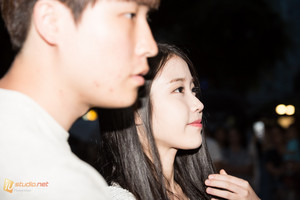


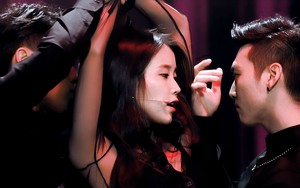




![[PRESS] 180909 IU at New Balance Run On 10 1 K](http://images6.fanpop.com/image/photos/41500000/-PRESS-180909-IU-at-New-Balance-Run-On-10-1-K-iu-41567043-300-480.jpg)
![[PRESS] 180909 IU at New Balance Run On 10 1 K](http://images6.fanpop.com/image/photos/41500000/-PRESS-180909-IU-at-New-Balance-Run-On-10-1-K-iu-41567041-300-480.jpg)
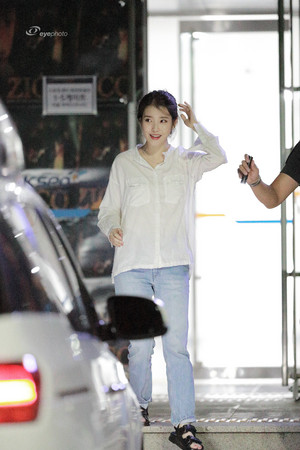

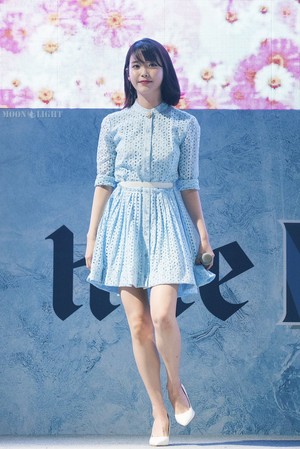


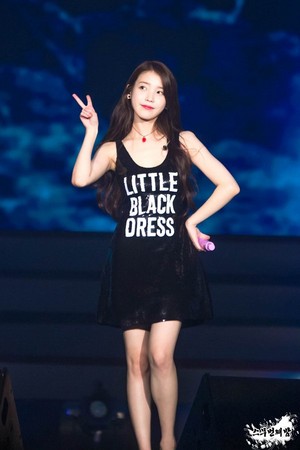

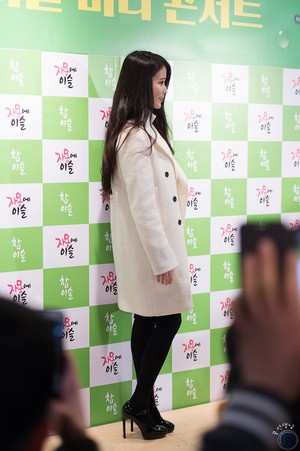
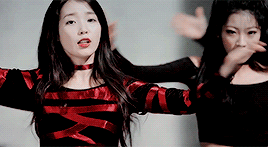
![[CéCi STAR] CoverGirl IU](http://images6.fanpop.com/image/photos/38800000/-C-Ci-STAR-CoverGirl-IU-iu-38893860-300-375.jpg)